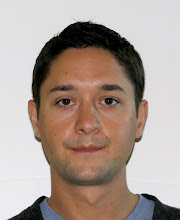Since November is now over halfway over and my last post was all about my leisure time, I figured I should do a quick update on my work here and how things are going. Two weeks ago I moved from the big house in Gangilonga out to my placement at Amani. I have a nice little self-contained house that used to be a school house for the expats children that lived at the center. It is a lot different living on my own with all Tanzanians (the students and staff at Amani) but I am adjusting well. I have been playing soccer (football for the rest of the world aside from North America) with the students at the center every Wednesday and Friday, and it has proven to be a good way to build relationships. Sports are amazing for how quickly they can erase the communication difficulties of a language barrier. I am about average in skill among the guys, some of them are very athletic and others not so much. I just about scored a goal by heading the ball towards the net last day, and they were all saying "Hongera!" (Congratulations!) to me even though it didn't go in. I guess they were surprised a mzungu could do such a thing.
Anyways, somehow I got sidetracked back into leisure time there... regarding work, I have just completed the Primary Health Assessment Survey in English which will be administered to all of the students at the center so that we can gauge their level of understanding of health issues and also the state of their home environment as they are all from different villages in the surrounding area. From this information I will be designing a relevant health curriculum to teach in the center over the next 7 months. Here are a few examples of the questions from the survey (which ended up begin 10 pages!):
Home Environment:
From which source does your family collect their drinking water in your home village/town?
- tap
- well
- spring
- stream/pond
- hole dug in ground
- other _______________________________
Which of the following best describes the latrine situation for your household?
- single latrine for your home
- latrine shared with other households
- no latrine in immediate area
- other _______________________________
Does your latrine have: (You can choose more then one)
___ walls
___ door
___ roof
___ pit cover made of wood and mud
___ pit cover made of concrete
___ pipe for ventilation
___ raised platforms for feet
___ ceramic basin in the ground
General Knowledge:
Our bodies are made of:
- soil
- blood
- air
- cells
The stomach is used for:
- digesting food and water
- breathing air
- circulating blood to other parts of our bodies
- playing sports
Blood is primarily used to:
- keep our bodies stiff and upright
- let us know when we are hurt
- transport oxygen and nutrients throughout the body
- humans do not have blood
Washing hands with soap is good for our health because:
- the soap goes into our bodies and cleanses us
- the soap washes away dirt and germs
- the soap has a soothing effect on our hands
- washing with soap is not good for our health
Malaria is caused by:
- a curse
- the bite of a mosquito infected with the malarial parasite
- the bite of a ant infected with the malarial parasite
- the bite of any mosquito at night time
The best way to treat dehydration caused by diarrhea is:
- getting lots of rest
- not drinking or eating anything
- drinking lots of clean water and using an oral rehydration solution
- using antibiotics from the pharmacy
HIV/AIDS is transmitted by:
- touching and sharing drinks/food with an infected person
- unprotected sexual activity with an infected person
- being bitten by an infected mosquito
- AIDS is caused by poverty and malnutrition only


1 comment:
Congratulations on being published, Mr. Landry. Your article was on the 3rd page of the Citizen today. It sounds great!
Post a Comment